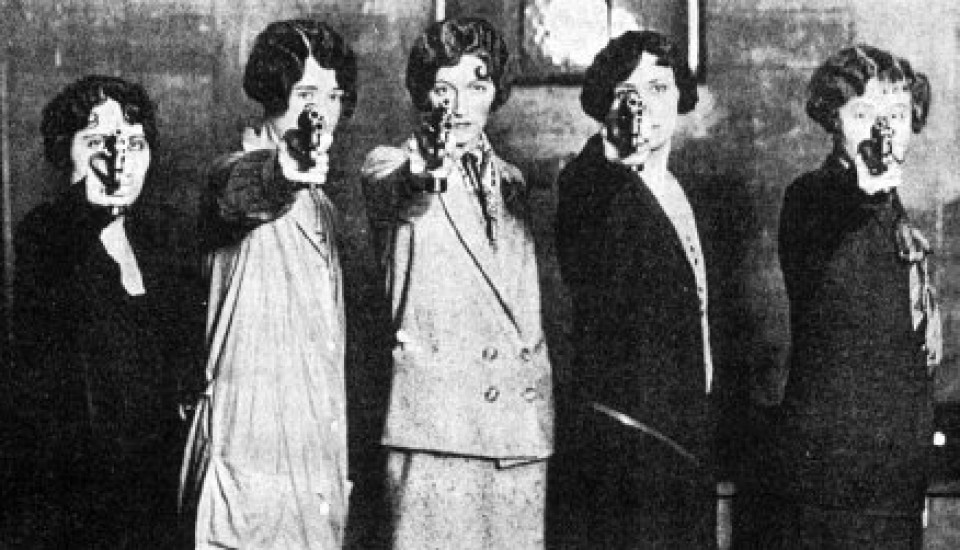Tags
awareness, defense strategy, firearm, garment, gun, pistol, practicing, self defense, skills
Submitted by Janice Talaroc
An effective self-defense system is comprised of five key elements. Your choice of personal protection device is one element. This may be a gun, knife, pepper spray, personal alarm, to name a few, or maybe all of these items. Another element is your choice of equipment to carry this device. Holsters, fanny pack, purses, pockets, etc., are all part of this element. Garment selection is yet another element. The last two elements are perhaps the most important: Awareness and training. Without them, the other elements may be ineffective in protecting you from harm.
Assuming you have made the decision to carry concealed, and you have selected your preferred device, a gun, the next decision involves selecting a method for carry. Comfort, accessibility, mode of dress, and anticipated activities are all factors in the sometimes complex decision making process. Comfort and accessibility will, in most cases, drive garment selection. You will have to be willing to make adjustments to your wardrobe in order to carry a gun on your person. If you are unable, or unwilling, to make this adjustment, you may prefer a fanny pack, bag or purse. Daily activities, such as work or travel, will also influence your method of concealment.
Garment selection is the foundation of a good concealment system. Without proper clothing, even the most expensive and comfortable holster and gun will not be effectively concealed. Concealed means concealed. Effective concealment clothing provides a good camouflage for your gun and holster.
Your pants will need to fit properly and have stable belt loops. If you chose an IWB holster, your pants and belt will need to be about two inches larger than usual to comfortably accommodate the holster and gun. Fabrics with stretch, or inserts of elastic on the waist band, seem to adjust well to increased waist size due to concealed carry. It is advisable to always wear a sturdy belt with any holster. (Although, some very small revolvers or semi-automatics may work in an IWB without a belt.) Your belt should be made of stiff material, and the loops on the holster should fit snugly around the belt.
Clothing worn on the top half of the body is going to provide the most effective means of camouflage. Layers are definitely most convenient. Seasons will determine, to a great degree, your choice of clothing and method of concealed carry. Winter is probably the easiest, as most people prefer larger, loose fitting, layered clothing. A knee or ankle length coat for cold weather is an excellent concealment garment. A large, loose fitting wool or cotton sweater does an adequate job of concealing most IWB holsters. Wool shirts, untucked, worn over undershirts or thermals can also provide adequate concealment. Vests are probably one of the most versatile forms of concealment for both summer and winter. A good concealment vest will hide your gun and holster, as well as provide additional pockets for extra accessories like a knife, keys or pepper spray. And many vests are made of light enough material that they may not need to be removed when entering a building from outside. This is something to keep in mind when removing a coat or other outer garment. Some extra time spent shopping should turn up some good options for concealment vests. http://www.511tactical.com/ offers some excellent choices for pants, shirts and vests, as well as other equipment. It may prove practical to have more than one option for concealment based on season, clothing choice, and gun selection.
Accessibility is extremely important. If your gun is not easily accessible, it may not serve its intended purpose in time to protect you from harm. Accessibility is determined mainly by two factors. First the clothing you wear while carrying concealed. And second, your holster, or chosen equipment for carrying. Your clothing must allow complete access to your gun. This may require that your jacket be unzipped, shirt unbuttoned, or pullover top fitting loose enough to be lifted with ease. No matter which garment you chose, training and practice are the best assurance you have for success. Practice drills with an unloaded gun, to include sweeping garment out of the way and drawing, are necessary to stay proficient.

Pingback: GUN FRIENDLY FASHION | Packing Pretty